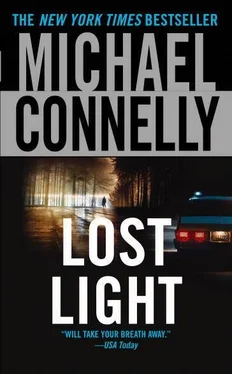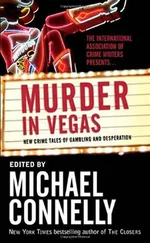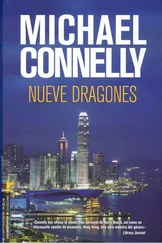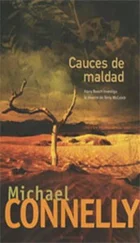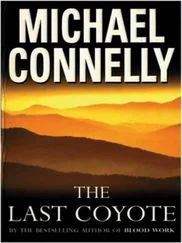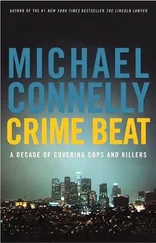
Michael Connelly
Lost Light
The ninth book in the Harry Bosch series, 2003
There is no end of things in the heart.
Somebody once told me that. She said it came from a poem she believed in. She understood it to mean that if you took something to heart, really brought it inside those red velvet folds, then it would always be there for you. No matter what happened, it would be there waiting. She said this could mean a person, a place, a dream. A mission. Anything sacred. She told me that it is all connected in those secret folds. Always. It is all part of the same and will always be there, carrying the same beat as your heart.
I am fifty-two years old and I believe it. At night when I try to sleep but can’t, that is when I know it. It is when all the pathways seem to connect and I see the people I have loved and hated and helped and hurt. I see the hands that reach for me. I hear the beat and see and understand what I must do. I know my mission and I know there is no turning away or turning back. And it is in those moments that I know there is no end of things in the heart.
The last thing I expected was for Alexander Taylor to answer his own door. It belied everything I knew about Hollywood. A man with a billion-dollar box-office record answered the door for nobody. Instead, he would have a uniformed man posted full-time at his front door. And this doorman would only allow me entrance after carefully checking my identification and appointment. He would then hand me off to a butler or the first-floor maid, who would walk me the rest of the way in, footsteps falling as silent as snow as we went.
But there was none of that at the mansion on Bel-Air Crest Road. The driveway gate had been left open. And after I parked in the front turnaround circle and knocked on the door, it was the box-office champion himself who opened it and beckoned me into a home whose dimensions could have been copied directly from the international terminal at LAX.
Taylor was a large man. Over six feet and 250 pounds. He carried it well, though, with a full head of curly brown hair and contrasting blue eyes. The hair on his chin added the highbrow look of an artist to this image, though art had very little to do with the field in which he toiled.
He was wearing a soft blue running suit that probably cost more than everything I was wearing. A white towel was wrapped tightly around his neck and stuffed into the collar. His cheeks were pink, his breathing heavy and labored. I had caught him in the middle of something and he seemed a little put out by it.
I had come to the door in my best suit, the ash gray single-breasted I had paid twelve hundred dollars for three years before. I hadn’t worn it in over nine months and that morning I had needed to dust off the shoulders after taking it out of the closet. I was clean-shaven and I had purpose, the first I had felt since I put the suit on that hanger so many months before.
“Come in,” Taylor said. “Everybody’s off today and I was just working out. Lucky the gym’s just down the hall or I probably wouldn’t have even heard you. It’s a big place.”
“Yes, that was lucky.”
He moved back into the house. He didn’t shake my hand and I remembered that from the time I first met him four years before. He led the way, leaving it to me to close the front door.
“Do you mind if I finish up on the bike while we talk?”
“No, that’s fine.”
We walked down a marble hallway, Taylor staying three steps ahead of me as if I were part of his entourage. He was probably most comfortable that way and that was all right with me. It gave me time to look around.
The bank of windows on the left gave a view of the opulent grounds-a soccer-field-sized rectangle of rolling green that led to what I assumed was a guest house or a pool house or both. There was a golf cart parked outside of the distant structure and I could see tracks back and forth across the manicured green leading to the main house. I had seen a lot in L.A., from the poorest ghettos to mountaintop mansions. But it was the first time I had seen a homestead inside the city limits so large that a golf cart was necessary to get from one side to the other.
Along the wall on the right were framed one sheets from the many films Alexander Taylor had produced. I had seen a few of them when they made it to television and seen commercials for the rest. For the most part they were the kind of action films that neatly fit into the confines of a thirty-second commercial, the kind that leave you no pressing need afterward to actually see the movie. None would ever be considered art by any meaning of the word. But in Hollywood they were far more important than art. They were profitable. And that was the bottom line of all bottom lines.
Taylor made a sweeping right and I followed him into the gym. The room brought new meaning to the idea of personal fitness. All manner of weight machines were lined against the mirrored walls. At center was what appeared to be a full-size boxing ring. Taylor smoothly mounted a stationary bike, pushed a few buttons on the digital display in front of him and started pedaling.
Mounted side by side and high on the opposite wall were three large flat-screen televisions tuned to competing twenty-four-hour news channels and the Bloomberg business report. The sound on the Bloomberg screen was up. Taylor lifted a remote control and muted it. Again, it was a courtesy I wasn’t expecting. When I had spoken to his secretary to make the appointment, she had made it sound like I would be lucky to get a few questions in while the great man worked his cell phone.
“No partner?” Taylor asked. “I thought you guys worked in pairs.”
“I like to work alone.”
I left it at that for the moment. I stood silently as Taylor got up to a rhythm on the cycle. He was in his late forties but he looked much younger. Maybe surrounding himself with the equipment and machinery of health and youthfulness did the trick. Then again maybe it was face peels and Botox injections, too.
“I can give you three miles,” he said, as he pulled the towel from around his neck and draped it over the handlebars. “About twenty minutes.”
“That’ll be fine.”
I reached for the notebook in my inside coat pocket. It was a spiral notebook and the wire coil caught on the jacket’s lining as I pulled. I felt like a jackass trying to get it loose and finally just jerked it free. I heard the lining tear but smiled away the embarrassment. Taylor cut me a break by looking away and up at one of the silent television screens.
I think it’s the little things I miss most about my former life. For more than twenty years I carried a small bound notebook in my coat pocket. Spiral notebooks weren’t allowed-a smart defense attorney could claim pages of exculpatory notes had been torn out. The bound notebooks took care of that problem and were easier on the jacket lining at the same time.
“I was glad to hear from you,” Taylor said. “It has always bothered me about Angie. To this day. She was a good kid, you know? And all this time, I thought you guys had just given up on it, that she didn’t matter.”
I nodded. I had been careful with my words when I spoke to the secretary on the phone. While I had not lied to her I had been guilty of leading her and letting her assume things. It was a necessity. If I had told her I was an ex-cop working freelance on an old case, then I was pretty sure I wouldn’t have gotten anywhere near the box-office champ for the interview.
“Uh, before we start, I think there might have been a misunderstanding. I don’t know what your secretary told you, but I’m not a cop. Not anymore.”
Читать дальше
